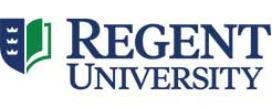The Early Assurance Program (EAP) exists to offer outstanding and qualified undergraduate students with firm interests in a career as a biomedical researcher and in attending EVMS the opportunity to gain early assurance of acceptance into the Biomedical Sciences Research Master's program at EVMS before beginning their final year of college.
By granting early assurance of acceptance into the program, students will be able to broaden their academic focus, engage in extracurricular leadership activities and pursue first-hand, lab experience.
Partner Institutions






Application & Admission
Each January, early assurance program advisers at each partner institution will forward names of eligible students who are interested in applying to the Biomedical Sciences Research Master's program through the Early Assurance Program to EVMS. Students interested in the program are required to maintain regular contact with the EAP adviser during their college career. Eligible students will receive an email containing the necessary links and instructions to apply.
Below are the main steps necessary to apply through the Early Assurance Program at EVMS.
- Meet with the EAP adviser at your institution as soon as possible.
- Establish a plan to complete prerequisites, certification and patient care experience prior to application deadline.
- Complete the GradCAS application (GradCAS Application Site) by February 15 of your junior year.
- Complete the undergraduate degree requirements and maintain EAP eligibility.
Eligibility
To be eligible to apply for the Early Assurance Program, a student must:
- Have completed the fall semester of their junior year with only one more academic year to complete;
- Meet all institutional and degree requirements to continue as a student in good standing;
- Maintain an overall (cumulative) GPA of 3.25 or better;
- Have satisfactorily completed 7 of 8 pre-requisite courses by the time of application without withdrawing from or repeating any courses used to satisfy the pre-requisites;
- Obtain grades of B or above in all science courses taken in sophomore, junior, or senior year;
- Have no academic or conduct code violations
Maintaining Eligibility
Continuation in the EAP will require evidence of general academic progress consistent with past performance, and of significant progress toward achievement of individually specified goals outlined in the application. Ongoing communication between the EAP applicant, the EAP advisor, and the EVMS Biomedical Sciences program will ensure that both school's requirements and individual applicant's objectives are being met. In addition, the following criteria must be maintained by the student to continue eligibility:
- Meet with EAP adviser each semester;
- Maintain contact with the EVMS Biomedical Sciences Program during the senior year;
- Carry sufficient credit load during the remaining regular academic semesters to fulfill undergraduate degree requirements;
- Maintain an overall (cumulative) GPA of 3.25 or better with consistent academic performance; obtain grades of B or above in all science courses taken after the freshman year;
- Make significant progress toward achieving the individually-specified goals outlined on the PUR submitted with the student's application;
- Fulfill all institution and degree requirements to maintain status as a student in good standing (no academic or conduct code violations) and earn a bachelor’s degree prior to matriculating in the EVMS Research MS program;
- Complete any additional specific matriculation conditions set by the EVMS Research MS program at the time of acceptance notification (e.g., official transcripts confirming date of degree completion, a criminal background check, indication of ability to independently meet the Technical Standards, and submission of all health requirements)
Failure to meet or maintain these eligibility standards will constitute grounds for dismissal from the program. Admission to the Research MS Program can be denied if events occur that would cause the Admissions Committee to question a student's suitability to pursue a career in biomedical research. These include, but are not limited to, misdemeanor or felony convictions, academic dishonesty or other code of conduct violations, unprofessional conduct in a laboratory or education setting, or inability to meet the Technical Standards.
